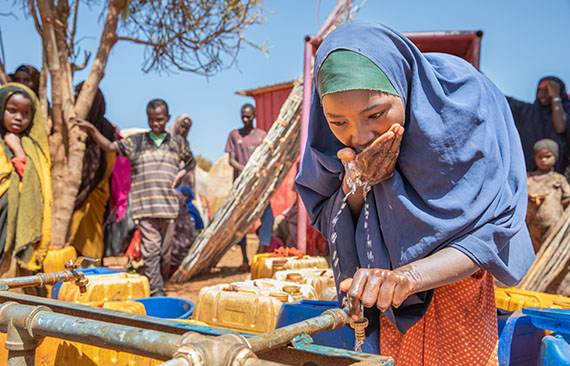Dear friends,
There is immense power in the availability of clean water. It saves lives, stops the spread of disease, grows food, and so much more.
As a Mercy Corps WASH (Water, Sanitation, and Hygiene) Program Senior Officer, I’ve seen how my Syrian neighbors, forced to flee their homes, have suffered from a lack of essential WASH services. That’s why our response in Syria includes trucking in clean water for drinking, constructing latrines, providing hygiene kits, building hand-washing stations to prevent the spread of disease, and more.
This month marks 11 years of conflict in Syria, and one thing is certain: whether directly or indirectly, water crises are often a consequence of war.
At this moment, Ukrainians are facing water shortages, as shelling damages water treatment facilities and pipelines, and power cuts mean water pumps no longer function. According to the UN, some 12 million people in Ukraine may need WASH services in the coming year.
This is why Mercy Corps works to ensure that people everywhere have access to clean and safe water. Last year alone, our WASH programs reached more than 13 million people across the globe.

In Somalia, Mercy Corps recently established water pipelines in camps for displaced people who have fled their homes to seek safety from violent conflict in the region.
When you sign the Mercy Corps pledge for clean water, you’re committing your support for our humanitarian teams around the world working to bring safe water to communities in crisis. Together, we can help create a brighter future for all.
Thank you for sharing your voice,
 |
 |
Areej Jadallah
Mercy Corps WASH Senior Officer, Middle East
|
Bringing her expertise to Mercy Corps since 2017, Areej and our WASH team work to provide health and dignity to refugees throughout northwest Syria. Areej believes that to be a humanitarian, the most important thing is to embrace your own humanity.
|

